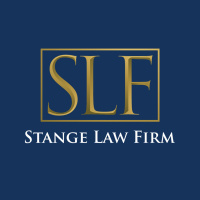Valley Divorce & Family Law Lawyer, Nebraska
Andrew J. Wilson
✓ VERIFIEDAccident & Injury, Personal Injury, Criminal, Divorce & Family Law, Wrongful Death
Andy is an Omaha native joining Carlson and Burnett as a partner with over 25 years of criminal and civil litigation experience. He began his career i... (more)
Stange Law Firm, PC Divorce & Family Law Firm
✓ VERIFIEDDivorce & Family Law, Child Custody, Child Support
Here to Help You Rebuild Your Life
Going through a divorce or family law matter can be an emotional time. You may feel betrayed, lost or overwhelmed. Having an attorney that can relate ... (more)
Rebecca Zita Adams
Construction, Family Law, Banking & Finance, Personal Injury
Status: In Good Standing
FREE CONSULTATION
CONTACTLeo J. Eskey
Federal Appellate Practice, Family Law, Divorce & Family Law, Criminal
Status: In Good Standing



